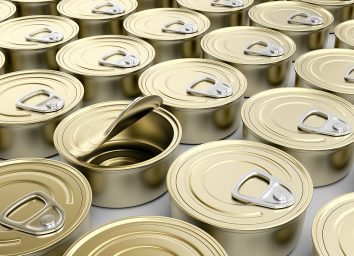
If we had to choose a food to be considered a fountain of youth, it would have to be a bowl of oats. While our carb-phobic world may balk at such an idea, studies actually prove it to true. Consuming oats on a regular basis does help significantly with numerous health concerns connected to decreased life expectancy like high cholesterol, weight gain, and even auto-immune disease and heart disease, making it the perfect breakfast food for longer life.
One study published by the Nutrition Journal proved this theory with a control group in China. To do so, they separated two groups made up of both men and women with mild to moderate hypercholesterolemia (high cholesterol). One group ate 100 grams of oats a day, while the others ate 100 grams of wheat flour noodles daily. After six weeks, the oat group showed a decrease in LDL cholesterol and waist circumference. A decrease in both of these things—high cholesterol and weight gain—has proven to help with overall health and longevity.
However, the key note in the study was the intake of dietary fiber, which is typically the one food that Americans don’t consume enough of. Between the intake of fiber and the decreased LDL cholesterol and waist circumference, the oat group saw an overall decrease in the risk around cardiovascular disease and hypercholesterolemia.
Oats are packed with dietary fiber.
This particular study had a test group eating 100 grams (about 2/3 cup) of oats a day, which does result in 10 grams of dietary fiber. Given that the dietary recommended intake (DRI) of fiber is 25 grams for women and 38 grams for men, getting 10 grams in from one bowl of oats does provide you with a significant amount of your daily amount. Especially because the average American only gets about 10 to 15 grams of fiber total in one day.
Dietary fiber has actually been proven to help significantly with weight loss, gut health, and even decrease the risk of numerous autoimmune diseases. By consuming oats on a regular basis, you can get a significant amount of that immune-boosting fiber into your diet.
However, eating 100 grams of oats is quite a large amount. Typically people would consume one serving at a time, which is measured at 1/2 cup of old-fashioned dry oats. This provides 4 grams of dietary fiber and 5 grams of protein. If you’re looking to increase your dietary fiber in your bowl without adding more oatmeal, you could add in a 1/4 cup of pumpkin puree (2 grams of dietary fiber), 2 teaspoons of chia seeds (2 grams) and 1/2 cup of raspberries (4 grams). That boosts your bowl to 12 grams of fiber for one breakfast.
Whole-grain intake helps with mortality.
Oats are part of a larger food group that has actually been proven to help with mortality—whole grains.
In an in-depth study conducted by the American Heart Association, it states having a regular intake of whole grains in one’s diet can help inverse mortality rates. The study’s conclusion even ends with supporting the dietary guidelines of eating three servings of whole grains a day.
According to recent dietary guidelines published by the Office of Disease Prevention and Health Promotion, whole grains are defined as containing the “the entire kernel, including the endosperm, bran, and germ.” Anything that has been refined has removed the bran and the germ. By doing so, you’re losing a lot of that dietary fiber, along with other nutrients like iron, zinc, magnesium, folate, selenium, and much more.
Carbs have been linked to longevity.
This brings us to the question that seems to take up a lot of conversation: Aren’t carbs bad for you?
Clearly there’s been a misconception. Refined and simple carbs don’t provide you with a lot of those rich nutrients you are getting from whole grains, especially dietary fiber. However, swapping those different refined ingredients with whole grains could result in significant changes in one’s health including weight loss and risk of autoimmune diseases.
Focusing on whole grains is actually one of the secrets behind living a longer life. Research even shows that even the healthiest people in the world consume a high-carb diet that is rich in whole grains and minimally processed foods. It closely resembles the Mediterranean diet, which continues to rate as the best diet for overall health by the U.S. News & World Report. The diet focuses on whole grains, healthy fats, lean proteins, some dairy products, and the occasional glass of red wine.
So if eating a high-carb diet and focusing solely on whole grains can help with longevity, why would you not want to start your day with a bowl of oats?
How to add more oats into your diet
There are two easy ways to prepare oats for breakfast—hot from the stove or cold overnight.
To prepare hot oats, you simply cook 1/2 cup of oats with 1 cup of milk (or even almond milk) over medium-low heat for at least 3 to 5 minutes. Once thick, you can put in any add-ins you want like peanut butter, maple syrup, and even pumpkin.
You can also prepare them cold by making overnight oats. Overnight oats don’t need as much liquid, you would simply soak 1/2 cup of oats with 1/2 cup milk overnight in a jar. You can add in lots of flavorings as well—like with these 50 Healthy Overnight Oats Recipes.
Plus, you don’t have to always enjoy oats in the morning! We know it’s fun to give your meals some variety. Instead of a bowl of oats in the morning, you could always get in your oats by making oat flour for your baking recipes—like this zucchini bread. Or even use it to make some healthy desserts like apple cranberry crisp or oatmeal raisin cookies.
For more healthy eating tips, be sure to sign up for our newsletter.








